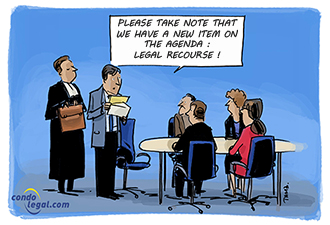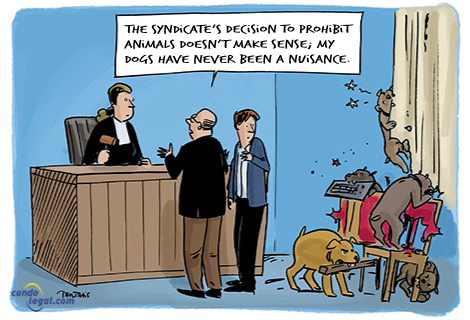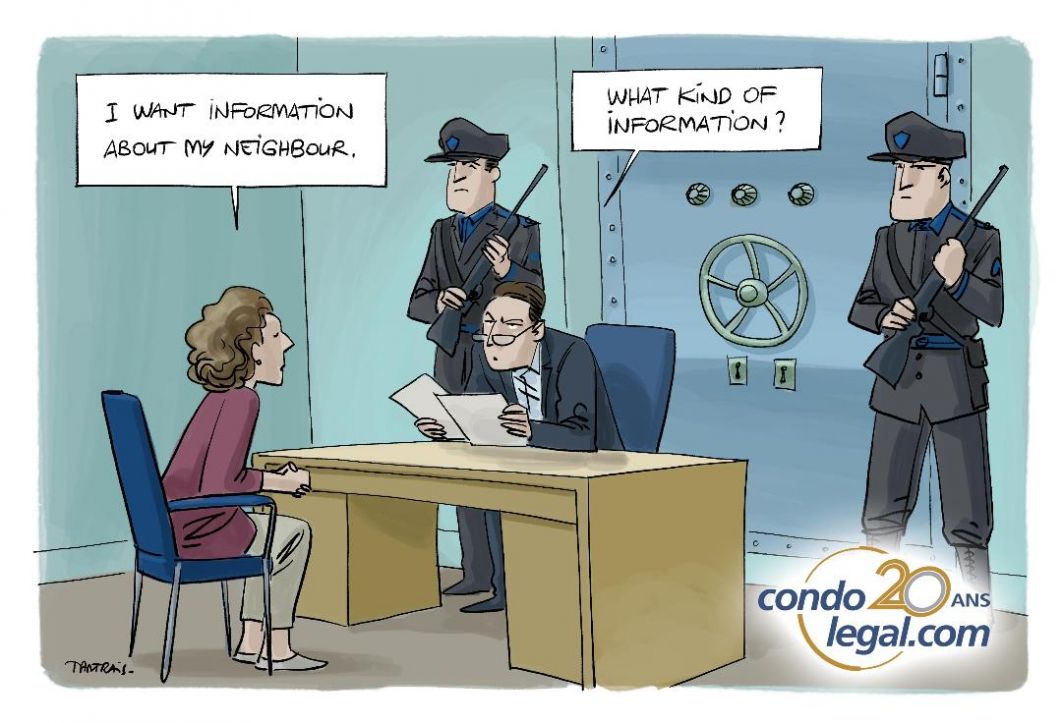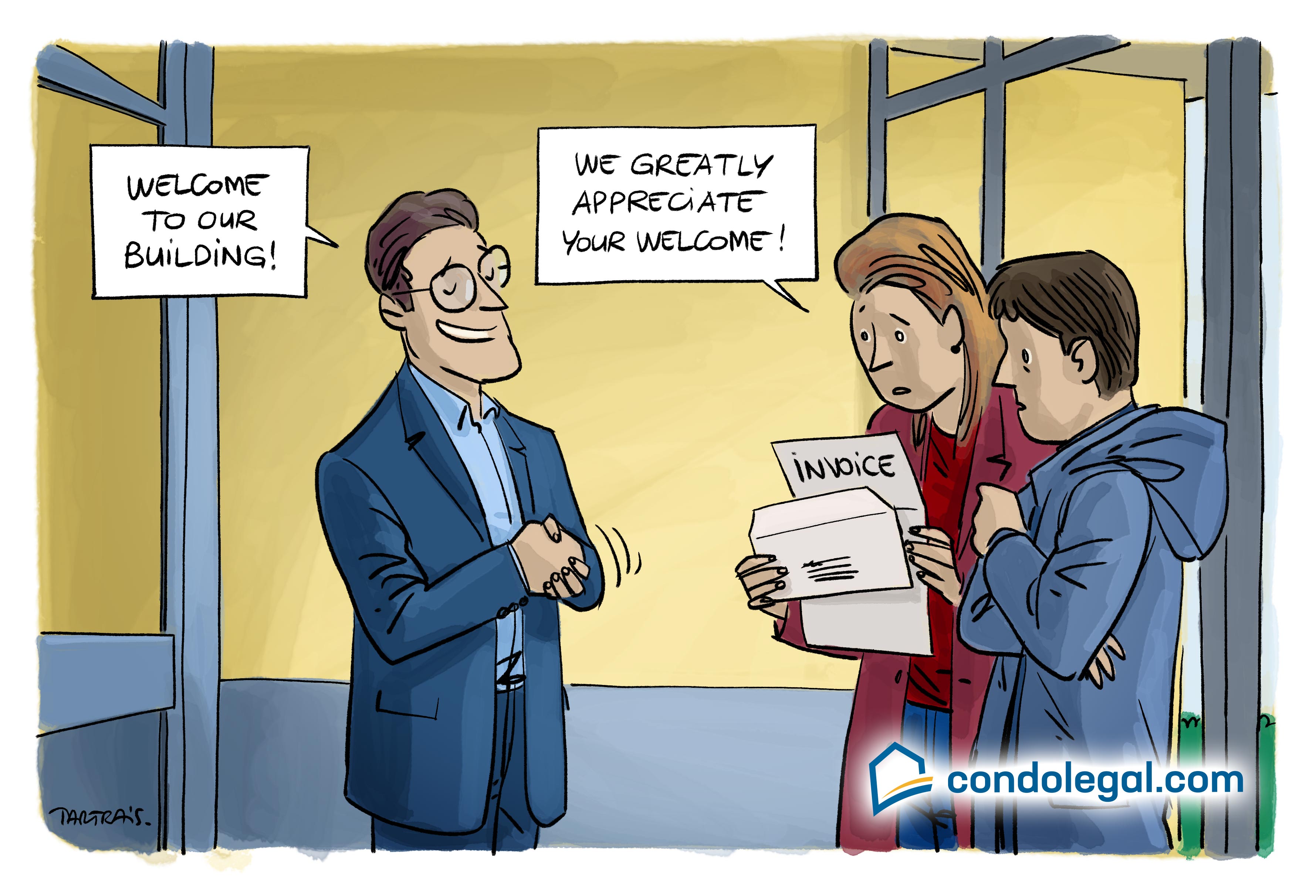27 Articles

Any co-owner may have the relative value of their fraction, as well as the allocation of common expenses, revised according to certain conditions and formalities. To do so, it is necessary to proceed with an appeal to revise the relative value of the fractions. Furthermore, a co-owner may wish to modify the relative value of their fraction. Therefore, they will have to request the prior consent of the Board of directors or the general meeting of…...

Initiating legal proceedings against a syndicate of co-owners is a measure of last resort, after having unsuccessfully explored private dispute prevention and resolution process. This path requires careful preparation and a thorough knowledge of the rules of law. This fact sheet is designed to guide those who are considering going to court to resolve their dispute with a syndicate of co-owners, by highlighting the legal basis and typical situations that can lead to such legal…...

The co-owners have a legal proceeding when they oppose decisions taken by the meeting of co-owners. They generally seek to contest decisions they consider unjustified. In order to promote the stability of the decisions made at the meeting of co-owners, the legislator allows such recourse only in certain circumstances. Thus, article 1103 of the Civil Code of Québec provides that any co-owner may apply to the court to annul or, exceptionally, to amend a decision…...

At a meeting of the board of directors, directors must not make any decision that is biased, or with the intention of harming the co-owners (or any of them) or disregarding their rights. In case of defect, the co-owners (or a director) can now take legal proceedings to oppose decisions taken by the Board of directors. Article 1086.2 of the Civil Code of Quebec, which came into force on January 10, 2020, allows the court to set aside or,…...

The Syndicate's obligation to maintain the common areas, and more particularly the common portions for restricted use, is a subject that has given rise to much debate since the 1994 reform. This obligation, although clearly defined, has often been a source of conflict and misunderstanding. Directors often find themselves in an awkward position when co-owners require major work to be carried out. This work may involve a seriously damaged balcony or, as was the case…...

The declaration of co-ownership is a contract that orchestrates and regulates the lives of co-owners, lessees and other occupants of the immovable. It represents the guideline for everyone who lives in the immovable.The declaration of co-ownership provides, systematically, that it is up to the board of directors to have its content abided to. However, it happens that people break the rules, in particular by a non-compliant use of a private portion with regard to the…...

The municipal value of a property is often a basic measure of market value. With the increase in the market value of buildings, caused by a booming real estate market, a co-owner may have a clear interest in asking his municipality to change the value of his unit (to reflect its fair value). In this regard, an incorrect value of an apartment can lead to excessive tax bills or a depreciation of its market value.…...

Usually declarations of co-ownership list the patrimony of the syndicate of co-owners. Among the items owned by the syndicate is the register of co-ownership. It contains all the syndicate's archives, such as the declaration of co-ownership, the up-to-date list of co-owners of the immovable and the minutes of the co-owners meetings and the board of directors meetings, enabling it to carry out its mission adequately. The co-owners must have access to this register, which can…...

Cohabiting with others in a building in divided co-ownership implies the right to respect for the private life. This right is guaranteed by article 3 of the Civil Code of Québec and the Charter of Human Rights and Freedoms. Its informational dimension is legally protected by the Act respecting the protection of personal information in the private sector (ARPPIPS). With the assent of Bill 64 on September 22, 2022, new rules for the use and…...

Common expenses (condo fees) must be paid by any co-owner. If they don't pay, they are considered "in default". The management of unpaid common expenses in co-ownership is a complex subject, often a source of concern for both syndicates and buyers. Indeed, the latter may find themselves responsible for the common expenses unpaid by the previous co-owner. Article 1069 of the Civil Code of Quebec plays a key role in defining the responsibility of the new…...
